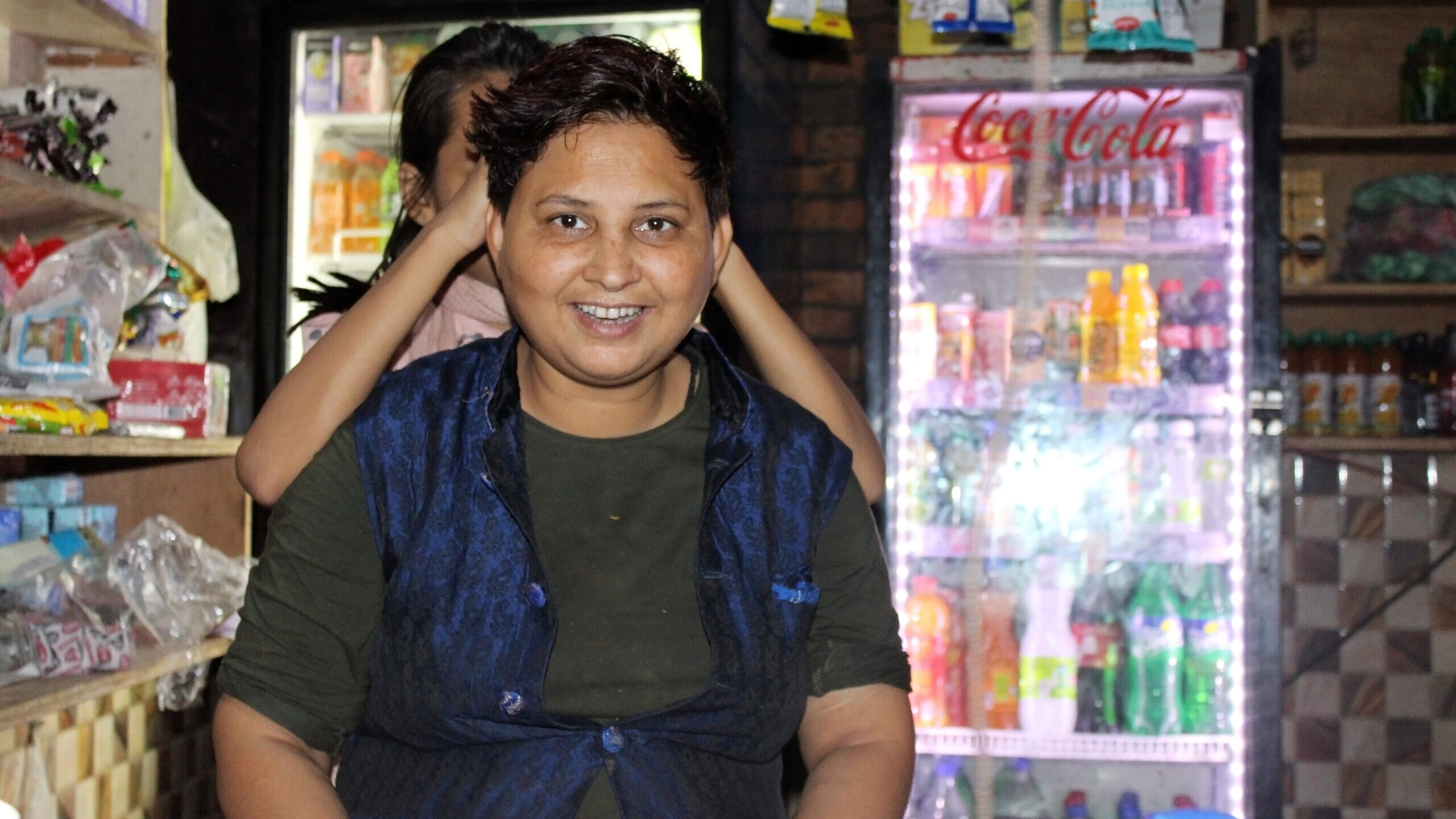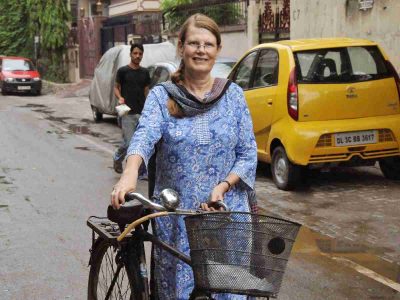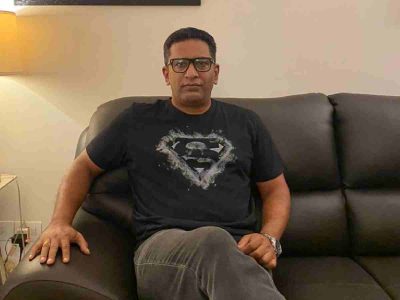As Nusrat Jahan confidently sits behind mounds of paper cups and kulhads, her brother Kamaal recites his freshly written Urdu poem to his favourite customers. Some listen to the poem, some just smile awkwardly.
Unlike her dreamy brother, Jahan keeps an eye on each of them, constantly juggling between work and maintaining udhaari (credit) accounts. “This is not how you run a shop”, she often scolds Kamaal for his carelessness about payments.
The tea shop, popular with students and locals alike, is tucked away on the outskirts of Delhi’s Batla House, right behind Jamia Millia Islamia.
Born in Zakir Nagar, New Delhi, Jahan is the oldest of 11 children and has been the sole breadwinner of her family for 25 years. The harsh realization that she had to sustain her family and protect her mother from her violent father came at a very early age, when she was in her teens.
“My mother was very religious and my father was not a good man. I just wanted to take my family away from him”, she tells Patriot.
In 1996, at the age of 16, she decided to step out of her home to earn a living. Overwhelmed by the ballooning financial stress and tired of not being able to afford food for almost four days, she made a life-changing decision: despite her mother’s disapproval, she cut her hair short and dressed like a boy.
“I always knew how bad the society was for a working woman”, she says. “No matter how virtuous and respectable she becomes, the world does not really care. So the first thing I did was change my look. Even today, if I dress like a woman and sit here, scores of people will be staring at me. But the look I now have gives me a different kind of strength, and nobody really minds my presence.”
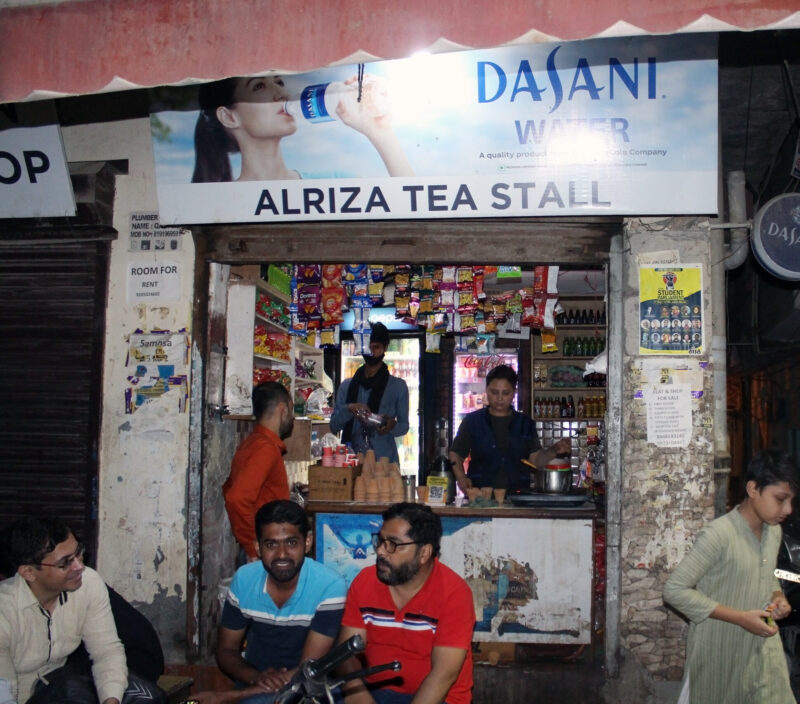
Her first employer, a clothes hanger retailer, had told Jahan initially that the work she wanted to do – delivery of goods – was not meant for women. She did not let this stop her and he relented.
“I took the job anyway. My salary was Rs 1,500 per month but I used to make around Rs 4,000”, she says. She did this by not using transport and walking to areas easily accessible by foot to supply goods instead. All of this was only possible because she looked like a boy, she says.
Jahan frequently emphasizes that the look she has embraced is forbidden by her religion, and that she is scared of being punished by Allah in the afterlife. “I just pray all the time that God forgives me. If I have destroyed my life for the sake of my family, I have also saved many. I pray to Allah that He sees all this”, she adds.
Although she believes that women should stay indoors and practise purdah, she feels she herself had no option but to ‘compromise’ with her principles. “I did all of this for them”, she points at her brother Kamaal, who is now brewing tea.
Jahan says that although she feels comfortable working among ‘educated university students’, other aspects of life are tougher. “I got a lot of benefits from my look. I feel extremely confident to go out even at night. I travel a lot – Mumbai, Benaras, and other places – for work.”
“There are a lot of crooks and drunkards on trains at night”, she explains. “If I look like a woman, I am at risk. In fact, I would not feel comfortable going out by myself. I know what I am from the inside and I am aware of how I look from the outside. So all of this really helps”, she says.
By and large, business associates consider her a man — most of them never realize that she is actually a woman. Jahan knows that it serves her best and continues the deception.
“People who know my true identity do not bother to say anything. However, most others don’t even recognize me. As you see here, a lot of people call me ‘Bhai’ and they never really realize their mistake”, she continues.
Jahan’s siblings were very young when she adopted the disguise. Even for them, Jahan was their big brother or a fatherly figure. “When they were small, I was their Shodab Bhai”, she laughs. “Only after they grew up did they realize that I am actually their sister. Ammi also used to tell them that I am their sister. Once they believed it, they started to question why I dress like this”, she adds.
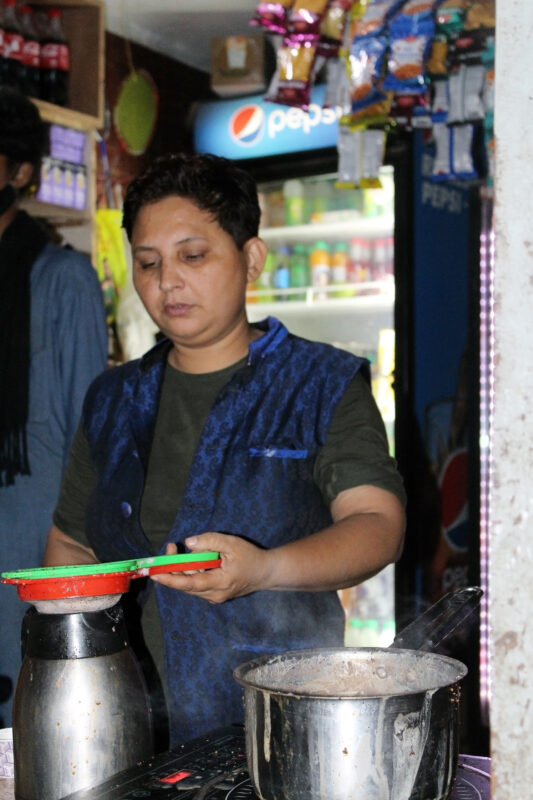
For Jahan, it’s the needs of the family that keep her going. She wakes up at 8 am and works as late as 1 am. She has developed the habit of chewing pan masala to ease stress. With mounting responsibilities, she often finds herself crying at night as her siblings don’t realize the sacrifices she has made for them.
“Sometimes I think about the things I have done for them and what they are doing for me. But then I just reason to myself that this is how the world is. I am like a father to them, and like a father I do not really expect anything back”, she says.
Her brother Kamaal believes that she takes unnecessary stress. “If the world is like that, tell me, why should you even care? I ask her not to stress so much, but she just never listens”, says Kamaal.
Jahan arranged the marriages of most of her sisters and brothers but the hardships never seem to end. Three siblings are still left to be married, and one of her sisters was widowed after five years of marriage.
“I always acted like a father and the responsibilities of a father never end. With time and age, there are new responsibilities. And I believe it is better to work hard than beg”, she remarks.
Asked if she wants to get married, she says that all her wishes died in early childhood; she was only three when she decided to never marry. “Even when I see my sisters getting married, I don’t want the same for myself. Neither do I feel any need for it. Now that I have given my life to them, I feel like they are my only family”, she says.
“You ask me what I think about my future. I believe my future is the afterlife, and I wish to do something for it. My life here has ended, and there is no future to think about”, she adds.
“I have gotten used to this look now. Even my behaviour has become like that of a man. And if by chance I dress like a woman in future, my modesty would not allow me to sit at this shop and earn a living”, she says.
Jahan believes that there is peace in hard work, and if people are faced with difficult circumstances, they should be ready to take radical decisions — as she has undoubtedly done.
For more stories that cover the ongoings of Delhi NCR, follow us on:
Instagram: https://www.instagram.com/thepatriot_in/
Twitter: https://twitter.com/Patriot_Delhi
Facebook: https://www.facebook.com/Thepatriotnewsindia

